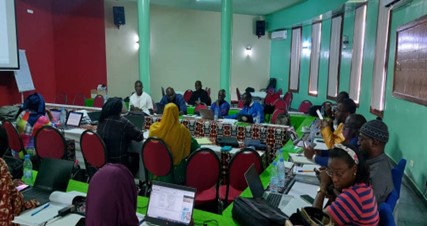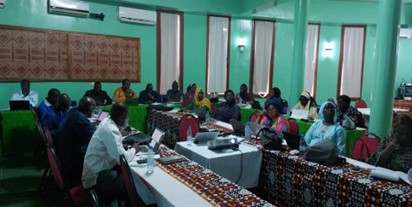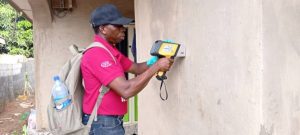Senegal adapts Frontline FETP tools to improve maternal and perinatal death surveillance and response
-
by
AFENET

Maternal and neonatal mortality is of public health concern in Africa needing innovative approaches to combat preventable maternal and neonatal deaths. One of the established approaches includes the promotion of skilled birth attendance, the repositioning of family planning, the establishment of a network of emergency obstetric and neonatal care (EmONC) maternity units, and Maternal and Perinatal Death Surveillance and Response (MPDSR).
The Senegal Ministry of Health, in recognition of AFENET’s strategic role in investigating and responding to public health threats in Sub-Saharan Africa, partnered with AFENET to control the rising numbers of preventable maternal and neonatal deaths in the country. AFENET was expected to train key staff including reproductive health coordinators and midwife mistresses from hospitals and districts using similar competency-based and hands-on principles used in the Frontline FETP program. The program is implemented by the Direction de la Santé de la Mère et de l’Enfant (DSME) of the ministry of health with funding support from the Susan Thompson Buffett Foundation.
A workshop to adapt and revise the Frontline FETP tools was held from June 12 to 16, 2023 at the Amarillys Hotel in Saly (Mbour). The workshop was chaired by the head of the Division de la Surveillance Epidémiologique et de la Riposte Vaccinale (DSRV), and attended by the Director of DSME and his staff, a representative of the Direction Générale de la Santé (DGS), a representative of the Director of the Centre des Opérations d’Urgence Sanitaire (COUS), the World Health Organization (WHO) regional advisor, the FETP resident advisor and FETP mentors. On the first day, the resident advisor gave an overview of the FETP program. The DSME representative reviewed the situation of maternal and neonatal deaths in Senegal, then the mentors presented the various tools used in the Frontline FETP.
After two days of group work, plenary sessions were organized, and discussions focused on the integration of stillbirths into the Weekly Epidemiological Survey (REH), the development of a course on the Maternal Deaths, Perinatal and Response Surveillance (SDMPR) cycle, carrying out problem analyses on maternal deaths, the needs to develop a collection grid for maternal and neonatal deaths in addition to that for stillbirths and the added value of training midwives to improve surveillance of maternal and neonatal deaths.
Participants recommended that the process of adapting FETP training to mother and child health should be documented and that to ensure the notification of deaths there was a need to integrate pediatric ward supervisors into the training programme and orient district medical officers to the SDMPR





